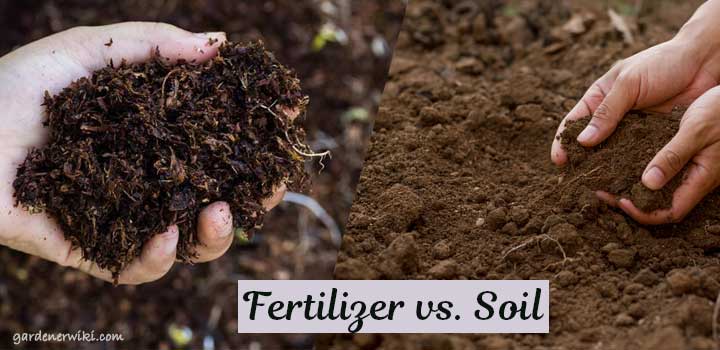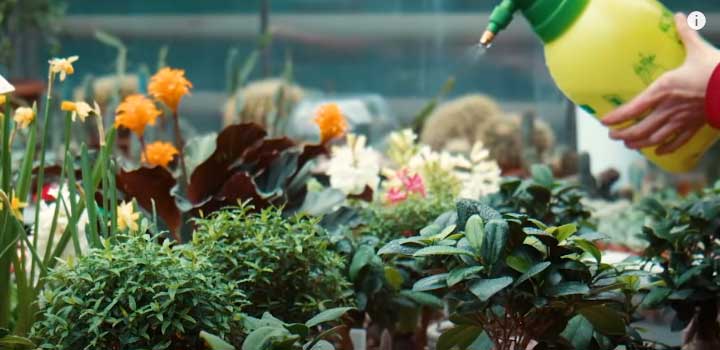It is a well-known fact that plants rely on the soil for all of their nourishment. They collect nutrients, which they later process to make food and thrive. Doesn’t fertilizer provide the same thing? Yes, they pack nutrients that help the plant grow. So, that makes soil and fertilizers the same thing, right?
Not really, but we indeed get why they are confused about the same thing. And as you stumbled here, you might also have the same confusion. But worry not, after going through this article regarding fertilizer vs soil, your idea regarding the topic will be as transparent as water.
You will get the know the differences between the two of them and eventually will be able to tell what things make one different from the other. So, without wasting any more of your precious time, let us get right into it!
What Are Soil Amendments?
As you know by now, when you are purchasing soil for gardening or planting seeds, you will be getting yourself a bag of soil amendments. And there are two different types of these available; they both share the same characteristics. Wondering what that is? They do not pack any concentrated nutrients.

Instead of that, these will improve the overall texture of the soil. It will enhance the consistency and make the air and water pockets readily available for the roots. So, the plants will not have any trouble in terms of prolifically searching for nutrients.
When the plants can adequately get the nutrients, they will develop strong roots. Also, they will have deeper roots. The stem and the foliage are going to be strong and healthy too.
Organic Amendments
As we have mentioned, there are two types of soil amendments. One is organic, which will modify the overall structure of the soil. And it will contain organic materials that will decompose over time. After decomposing, it will make the ground highly capable of capturing nutrients and water from the surroundings.
But what do these usually contain? Well, organic materials such as worms, insects, soil-borne fungi, and other organisms. All of them will decompose quickly in the ground. However, the soil will need a good amount of energy for the decomposition process, which is where nitrogen comes into play.
Inorganic Amendments
The other type of soil amendment that is available is inorganic. These will not contain any sort of organisms. Instead, they will have different kinds of chemicals that will balance out the soil. A perfect example of this would be gypsum. Usually, it is added to the ground to balance its high sodium content.
And after it is added, it will improve the overall ability to infiltrate water. Eventually, the plants will quickly get to the water pockets and thrive and grow strong pretty fast.
Fertilizers

The fertilizers do not have anything with the texture of the ground. Instead of worrying about that, it increases the nutrient contents. The nutrients that it packs will remain in concentrated form and will usually dissolve with water.
Even though different kinds of fertilizers are available for various plants, there are mainly two kinds of fertilizers.
That being said, how fertilizer helps plants grow? Well, the nutrients that it will add to the ground will directly influence the plant’s growth. It fills up the gap of deficiency that some of the plants might have and will improve their health condition.
But the texture of the ground does play an essential role in case applying fertilizer. For example, if you use high quality fertilizer for Daylilies in a poorly managed and compact garden, it will not work that efficiently. Instead, you would have first to take care of the texture and mix the fertilizer with the ground.
So, before applying the fertilizer, check whether the soil is the right type of soil for the fertilizer, then use it.
Organic Fertilizer
The organic fertilizers are from natural and organic materials. They will mostly contain manure, animal products, plant products, and compost. These are a great source of nutrients, but the amount or ratio will not always be measurable. Do you know why? Because different sources will have various contents.
That is why most of the bags will state the estimates instead of expressing the actual numbers. Nonetheless, the organic fertilizers will usually work a bit slow and over time. The primary function is to provide nutrients to the plants, but it will also build up the structure of the topsoil over time.
Another good thing about organic fertilizers is that it is possible to make them right at home.
Inorganic Fertilizers
As you might have guessed, inorganic fertilizers will contain chemical components. These components will include the necessary nutrients that will enhance the overall growth of the plants. Also, it acts like a short boost, which means the effect will not be there for the long term.
Nevertheless, unlike the organic fertilizers, the nutrient contents will be specified on the packages. So, you can determine what your plants lack and use the one that will fulfill the gap for the short-term and help the plant strive.
What Makes Fertilizer and Soil Amendments Different?
Let us now focus on the main thing that you are here for. In terms of differences, the main is that the fertilizer will contain a concentrated form of nutrients, which the soil amendments will not have any of them. Also, amendments will work in improving the physical condition of the soil, which fertilizer does not.
Additionally, fertilizers directly work on the growth and health condition of the plant. In contrast, the soil amendments will improve the state of the soil, which will indirectly affect the development of the plants.
Final Words
After reading through the article, hopefully, your concept regarding fertilizer vs soil is pretty clear at this point. And now that you know the differences between the two, we hope you will be able to make your garden thrive with healthy and lush plants.